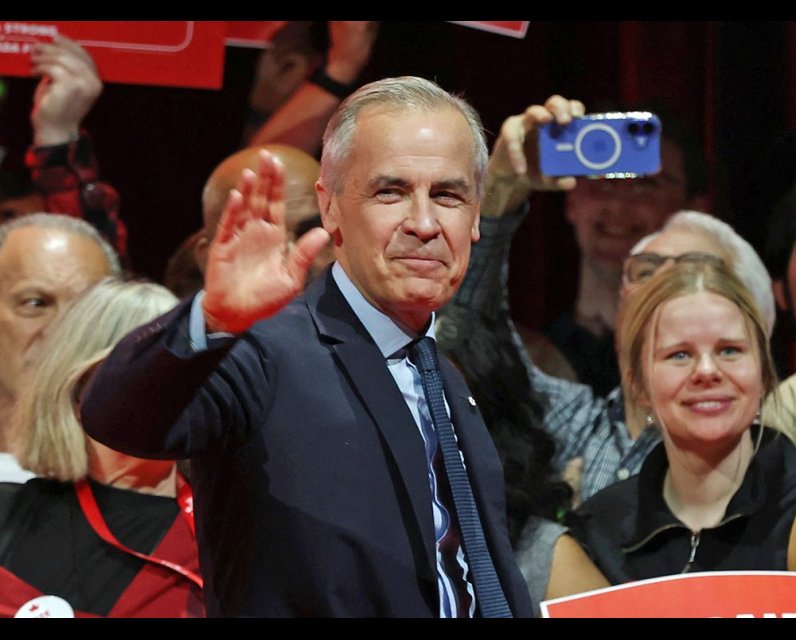Source Feed: National Post
Author: National Post
Publication Date: May 1, 2025 - 18:09
'One of the best elections for the polls in a long time': How pollsters predicted federal election outcome
May 1, 2025

Despite some distrust during the federal campaign, and fluctuations on election night, in the end, the polls got it right: Mark Carney’s Liberal Party won the most seats.
The Liberals netted 168 seats in the House of Commons, followed by the Conservatives with 144 seats. Carney will form a minority government, with the need for other parties’ support to pass legislation. A majority government would have needed 172 seats.
This was — more or less — what the polls projected in the weeks and days leading up to the election. A Liberal victory was projected, while some analysis had expected a Liberal majority government. But when it comes to the popular vote projections, pollsters got it pretty close to right.
For pollsters, elections can be validating, said Andrew Enns, Leger’s executive vice-president, central Canada.
“Elections for our industry are one of the few times we can test our work,” Enns said.
Still, that doesn’t mean that polls always get it right.
“People sometimes expect perfection out of polls and that is not reasonable,” said Philippe Fournier, who does polling analysis at aggregator 338Canada.
According to Elections Canada, 43.7 per cent of Canadians voted Liberal, while 41.3 per cent voted Conservative. Both the Bloc Québécois and the NDP each got 6.3 per cent of the national vote, which translated to 23 seats and seven seats, respectively. The Green Party got 1.2 per cent of the vote and one seat.
“The polling average in this election was remarkably good, it looks like it will be one of the best elections for the polls in a long time,” Fournier said.
Leger, which did polling for Postmedia during the election campaign, predicted that the Liberals would secure 43 per cent of Canadians’ votes. They predicted 39 per cent of Canadians would vote for the Conservatives, six per cent for the Bloc Québécois, eight per cent for the NDP and two per cent for the Green party.
Abacus Data had similar predictions. Its final campaign poll predicted 41 per cent of the vote would go Liberal, and 39 per cent would go Conservative, with 10 per cent going to the NDP and six per cent to the Bloc. The Angus Reid Institute, another pollster, predicted 44 per cent of voters would cast a ballot for the Liberals and 40 per cent for the Conservatives, with the NDP netting six per cent of the vote and the Bloc getting seven per cent.
During the campaign, some wondered if the pollsters had got it all wrong. A small group at a Conservative rally in Brampton, Ont., turned up in sweaters with the words “Do you believe the polls?” Given the huge rallies held by Conservative Leader Pierre Poilievre, some felt that the polls were not representing the reality on the ground.
Éric Grenier, a polling analyst who writes The Writ newsletter, said the claims weren’t unexpected.
“I think there will always be some people who will try to claim that their side is going to win, despite the fact that every reliable piece of information might suggest that they won’t,” he said.
Despite their loss, the Conservatives received more support than predicted, particularly in Ontario and the Greater Toronto Area — vote rich parts of the country that can be make or break a national election campaign.
Fournier admitted the Ontario polls did have the Conservatives a bit too low, but within a very reasonable margin.
“Everything was within the margin of error regionally and nationally,” Fournier said, “It was how the NDP vote swung, in Toronto, it swung Liberal, in southwest Ontario most of it seemed to have gone to the Conservatives.”
Grenier said it was surprising how well the Conservatives did in the GTA, but it shows that different regions had different concerns in this election.
“You see how the differences within a particular region, versus what you would’ve expected from the baseline polls, give us a little bit of a story of what might’ve been especially top of mind for voters in different parts of the country,” Grenier said.
Ottawa police said Sunday one man was arrested after reports on Saturday of a man "using a gun" in a vehicle on Highway 174 near Champlain Street in the Place d'Orleans area. Read More
May 25, 2025 - 10:55 | Norman Provencher | Ottawa Citizen
China's Premier Li meets Indonesia's President Subianto to deepen trade ties amid global tensions; $10B in investments underway, with focus on nickel, rail, and BRI projects.
May 25, 2025 - 10:15 | Globalnews Digital | Global News - Canada
A male cyclist has died of injuries he sustained in a vehicle collision in the city's south end, according to the Ottawa Police Service.
May 25, 2025 - 09:54 | | CBC News - Ottawa




Comments
Be the first to comment